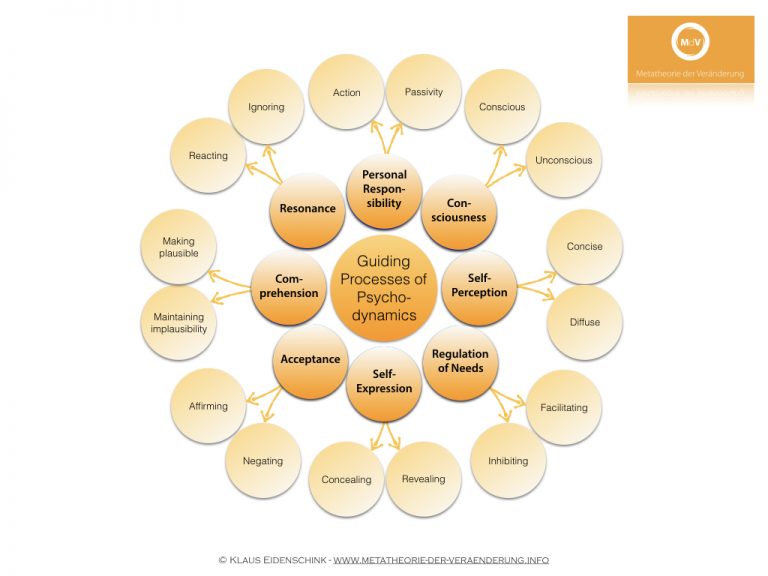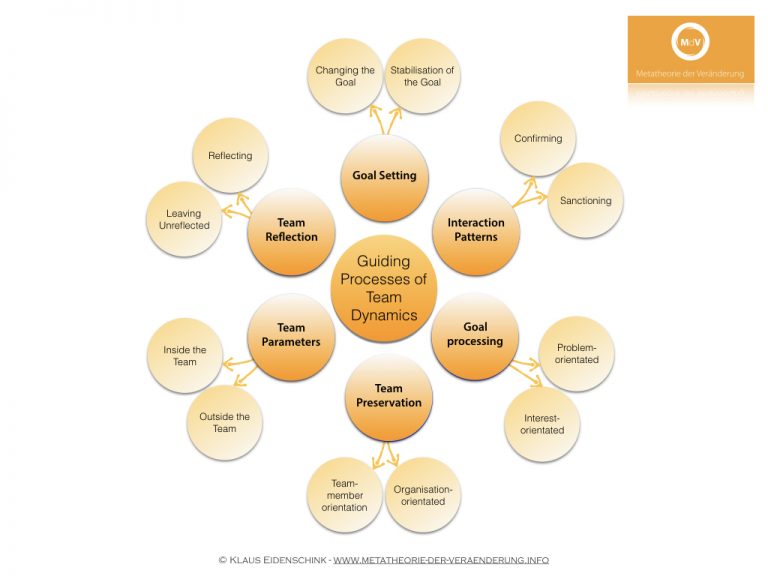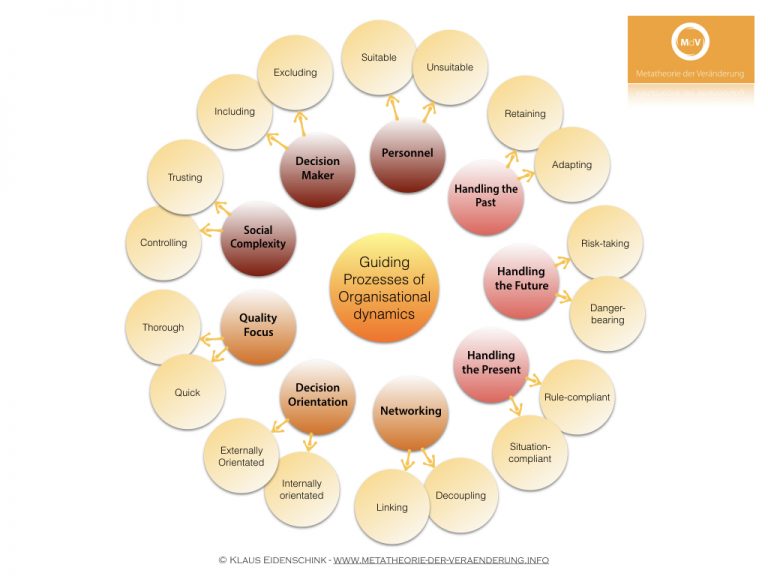Overview of Change Dynamics
People, Groups, Organisations and Social Systems are ‘Happenings’ and not Things!
They are active in order to create, maintain or change that which they are. Every stability is dynamically created. Therefore it is crucial, for every type of consultancy, that it understands how the conditions which exist, and which customers mostly wish did not, are created. Only when it is clear which activities produce and maintain the actual (undesired) conditions, the possibility to effectively and truly permit and encourage change is created. Consultancy attempts, which desire to effect change (rather than to enable it), are, according to the considerations here presented, in danger of producing unfavourable resistance, overlooking favourable resistance and producing fake solutions, not perceiving the knock-on effects of change and then processing them poorly.
Where dynamics of people, teams and organisation are similar or different, how they stabilise themselves and transform, how they draw upon influence from outside or enable it, we shall present here as briefly and as succinctly as possible. The graphics below only serve to give a first hint of the nature of the theory. From a meta-theoretical point of view, however, all systems share something: they organise their processes and structures in order to work on decision imperatives. As they can make these functional and also dysfunctional, consultancy is often required. It becomes possible and can, in acknowledgement of the decision-making landscape, be very precise and effective.
Those who cannot manage themselves, cannot manage others. Those who don’t know themselves, cannot understand and motivate others. Those who have limited awareness of themselves, cannot know themselves and will overlook the important things outside. And where they do not perceive something in themselves, they always have a good reason for it.
Therefore, all is required for the change in people: perceptions, experiences, affects, understanding, will, action and the environment. If you work only with solutions, only systematically, only in dialogue, only with insight, only with behaviour or only with the up-skilling of abilities, your professional competence is limited and leaves a lot to be desired by the client.
Here we comprehensively present our integral concept.
Groups live in a paradox, constantly having to decide what should remain stable and what should change, objectively, socially and procedurally. In this way the dynamics of groups can be understood as being interlocked within these factors:
- The clarification of the team’s central function,
- the treatment of the question about which activities are to be influenced by authority, leadership or power and
- the interaction of unsolvable contradictions between participation and separation, of belonging and co-existence, of openness and tactful oversight.
Managers and team developers must be able to know, work and juggle with this diversity. You can find a brief text about this subject for downloading here: Teamcoaching.pdf
Organisations organise themselves: they organise objective decisions (“Shall we do this or that?”), they organise decisions with a social focus (“Who will do that, him or her?”), they organise time (“As usual or differently?”), they organise all together (“Is tomorrow’s plan about yesterday with the people from today still attainable the day after tomorrow, given the competition?”). Therefore, in organisations, processes and structures of communication are formed, which predispose all decisions and regulate their creation and resolution. They determine how, by whom and where the inevitable and business relevant conflicts are processed and they organise the processing of their relevant environments.
Therefore, change projects must be designed so that it becomes clear on which organisational pattern it is constructed, which focus is to be chosen and which is to be neglected and in which order and which problems are to be worked upon. For this it almost always needs (competent) consultancy.
The distilled organisation theory guiding process of organisational dynamics designed by us permit a clean analysis of the state of organisational units and possible dysfunctional patterns.
Editorial:
Kirsten Brühl and Klaus Eidenschink are responsible for the editorial content of this website.
If you have questions and concerns about this site, please write to us.
This site is conceptually supported by:
Eidenschink & Partner
Hephaistos, Coaching-Centre
Gestalt-Therapeutic Centre Wuermtal
Contact:
Telephon: +49 (0) 89 – 85 66 22 90
Telefax: +49 (0) 89 – 85 66 22 45
E-Mail: info@metatheorie-der-veraenderung.info



